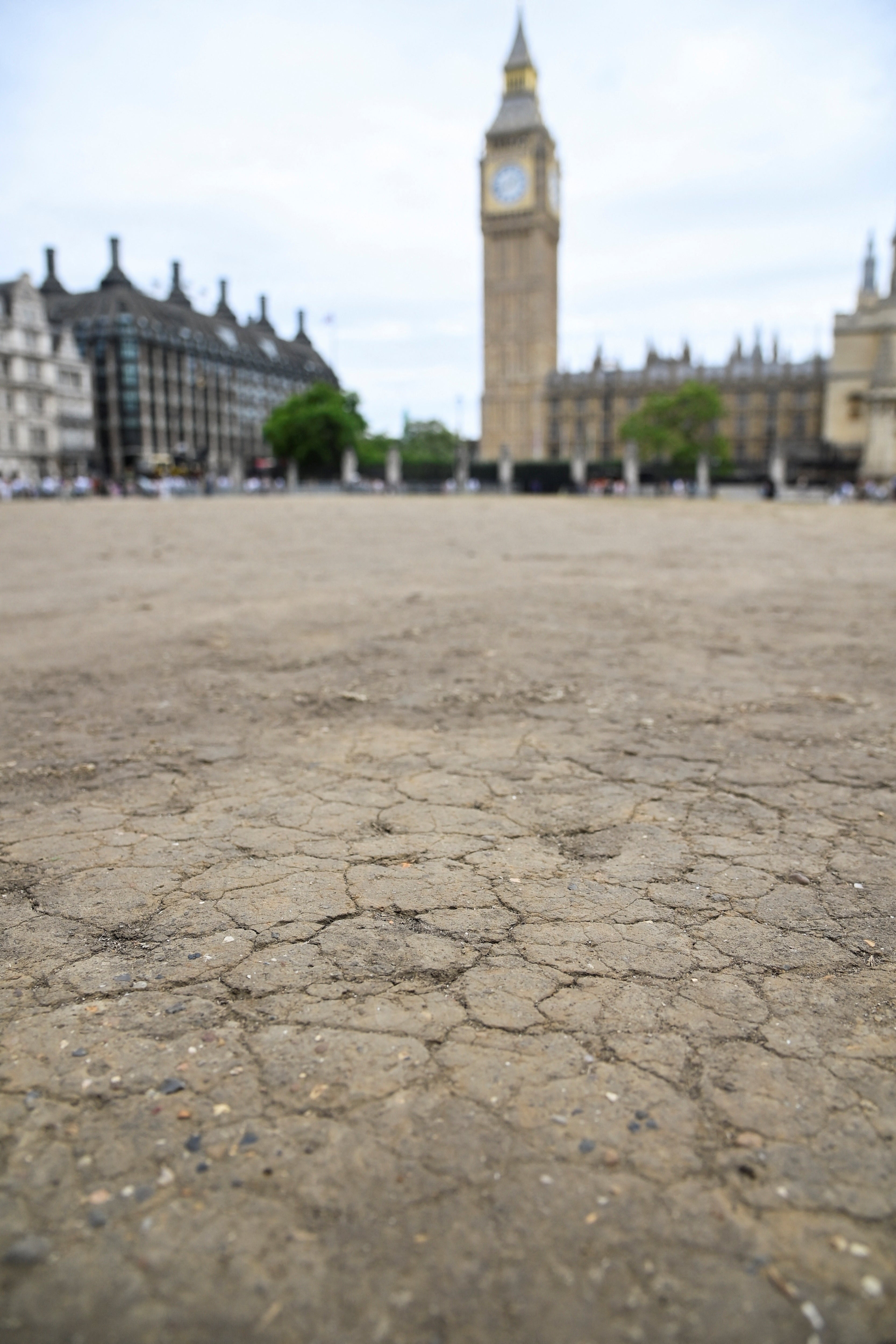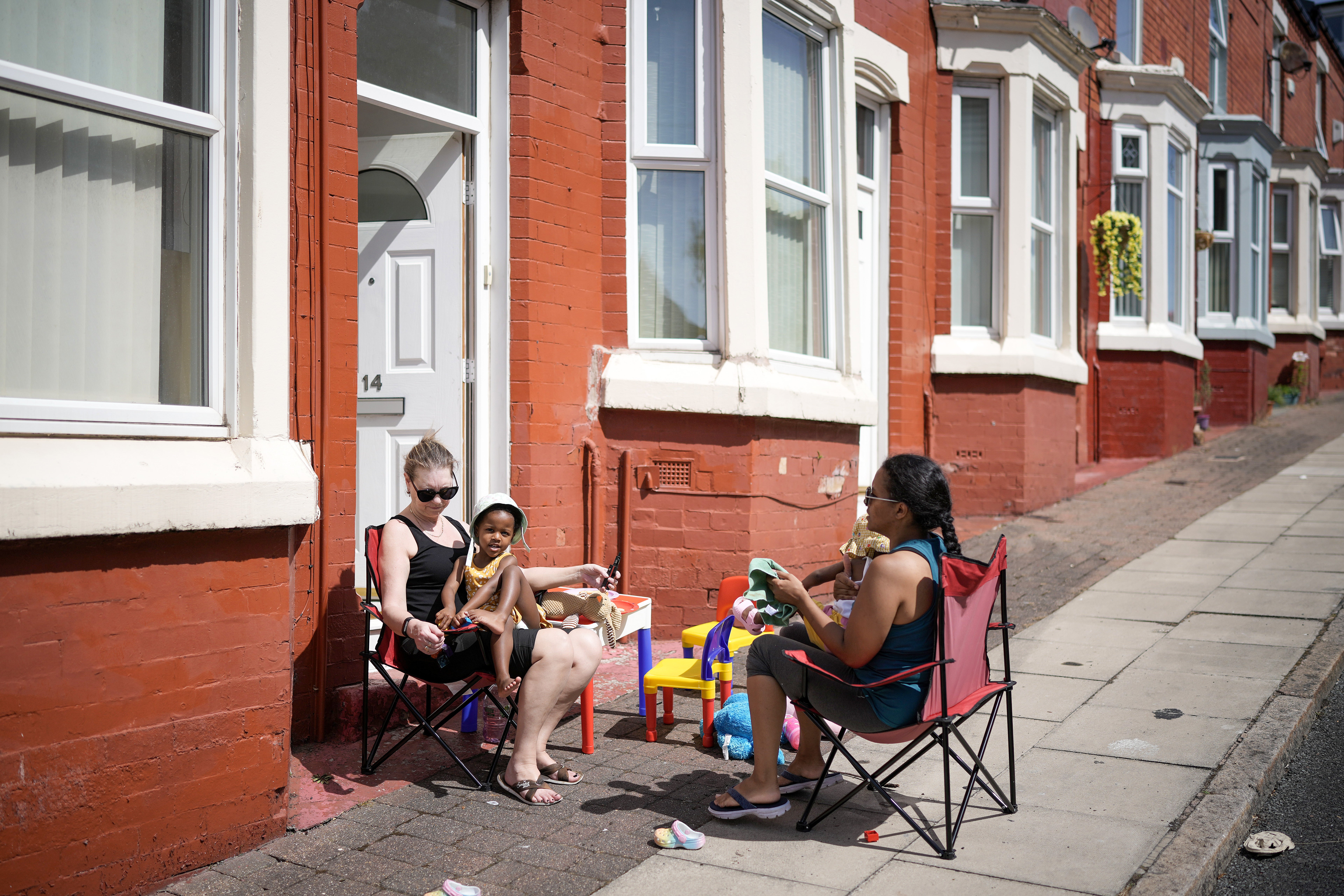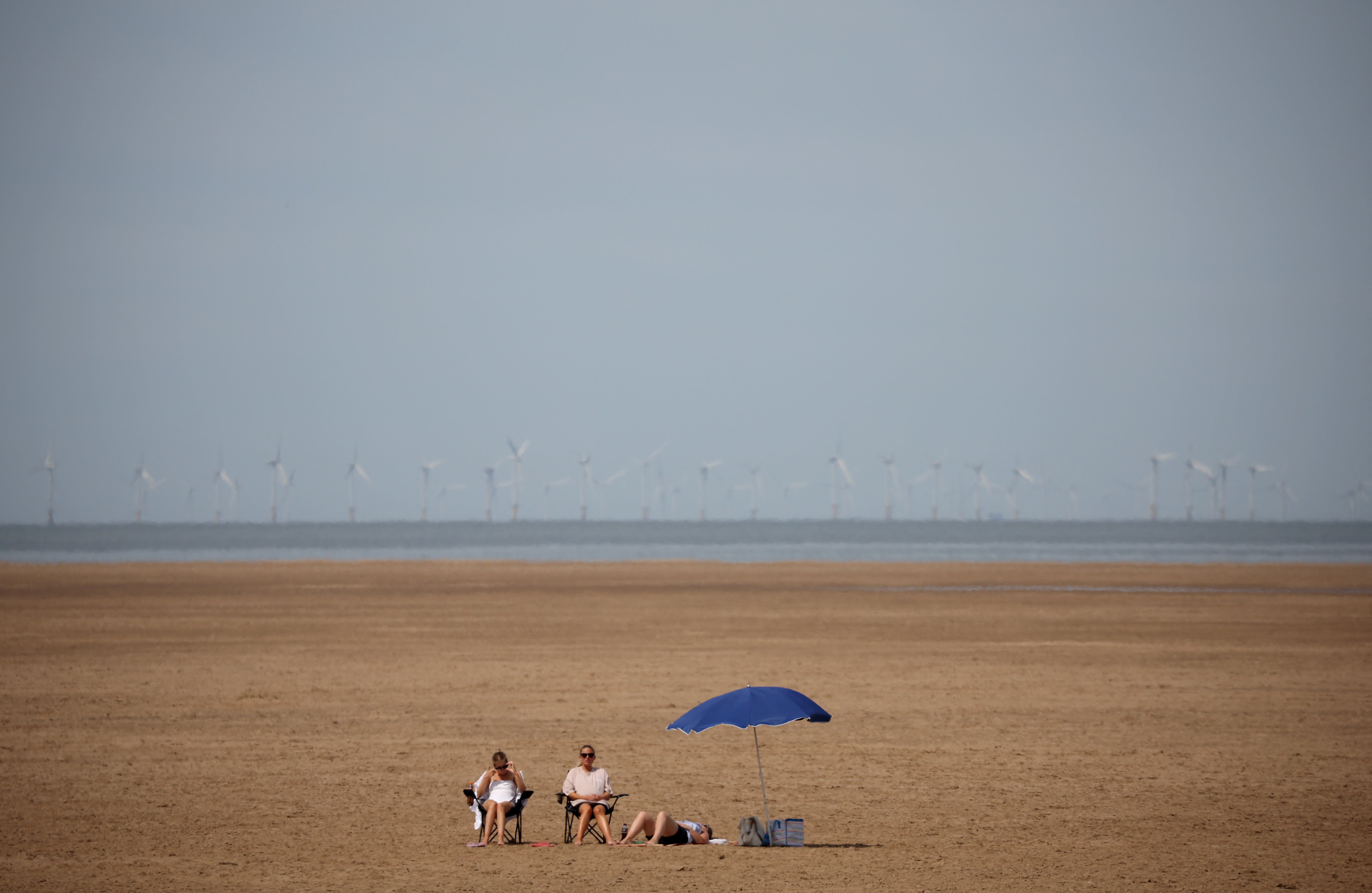UK weather: Thunderstorms and showers to break 35C heatwave as Britain faces two day warning for ‘extreme’ conditions
Week-long heatwave could come to an end after potentially record-breaking temperatures
The heatwave gripping Britain may subside earlier than expected as thunderstorms and showers sweep in early next week.
Forecasters extended an extreme heat warning for most of England and Wales to cover Sunday and Monday as temperatures were expected to be above 30C across the board, rising in excess of 35C in the southeast.
The Met Office said Sunday brought a 30 per cent chance of the heat rising above 40C, higher than Britain’s hottest ever temperature of 38.7C set in Cambridge in 2019.
Temperatures will stay above average until building to extreme levels from Saturday – though public services were already under strain by Tuesday.
Ambulance services in England were on the highest level of alert as difficulties with the hot weather combined with Covid absences among staff and ongoing delays handing patients over to A&E.
At least two councils in England warned that bin collections would be affected by the heat. South Oxfordshire District Council told residents to leave their bins out for two days past collection as staff would be finishing their rounds early due to the heat.
Royal Borough of Greenwich Council in London also told residents to expect delays.

Commuters will be affected as the rail network slows down trains in order to reduce the likelihood of tracks buckling in the heat.
On the roads, the RAC recorded a 10 per cent increase in breakdowns on Monday compared with a typical Monday in mid-July, with hundreds of vehicles across the UK not able to function properly due to the heat.
The Royal Life Saving Society warned of the dangers of trying to cool off in lakes, quarries, rivers and other waterways in the extremely hot weather after a 16-year-old boy, Alfie McCraw, from Wakefield, died while swimming in a canal.

Southern areas of England have been placed on the second-highest level of alert this week by the UK Health Security Agency (UKHSA), meaning health and social services are required to work to protect vulnerable people.
The UKHSA’s head of extreme events and health protection, Dr Agostinho Sousa, said: “Heat-health alerts have now been issued to the majority of the country, with temperatures set to remain consistently high throughout the duration of this week.”
There were fears the UKHSA would have to raise the alert level to 4, the maximum, if temperatures push above 40C as the Met Office said was possible.
Met Office deputy chief meteorologist forecaster Rebekah Sherwin said: “Weather forecast models are run hundreds of times to determine the most likely weather outcome ... Some models have been producing maximum temperatures in excess of 40C in parts of the UK over the coming weekend and beyond.
“At longer time scales temperature forecasts become less reliable, so whilst these figures can’t be ruled out, they are still only a low probability.”
The Met Office forecast the current heatwave could break between Sunday and Tuesday and temperatures could return to normal or slightly above average for July.

However, forecasters said it was not certain the heat would subside by then.
Thunderstorms and showers are possible in the same period, starting in southern England and spreading erratically northwards and eastwards, the Met Office said.
As forecasters warned of the potential for dangerously high temperatures, government ministers met to coordinate a national response to protect vulnerable people.
Downing Street said: “There is significant work going on across government in making sure those who are most vulnerable to high temperatures are looked after and given the requisite advice.”

Meanwhile, MPs urged the government to introduce a maximum working temperature to protect employees from the adverse effects of hot conditions, which include tiredness, infections, heat stroke and death.
They suggested a limit of 30C in most workplaces or 27C for those doing strenuous work.
Heatwaves are the deadliest extreme weather event in the UK and according to the Met Office there are an average of 2,000 heat-related deaths each year.
But scientists have warned that such events will only become more frequent and severe as a result of climate breakdown, and earlier this year the Met Office raised the threshold for weather to be considered a heatwave in parts of the UK to reflect the country’s warming climate.
Join our commenting forum
Join thought-provoking conversations, follow other Independent readers and see their replies
Comments
Bookmark popover
Removed from bookmarks